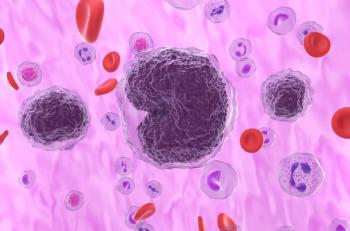
The 3 FDA-approved CAR T-cell therapies showed comparable survival outcomes in DLBCL over a 3-year period.

The 3 FDA-approved CAR T-cell therapies showed comparable survival outcomes in DLBCL over a 3-year period.

Saurabh Dahiya, MD, FACP, an associate professor of medicine at Stanford University School of Medicine, discussed safety and efficacy data from a phase 1 trial for Kite's CD19/CD20-directed CAR-T.
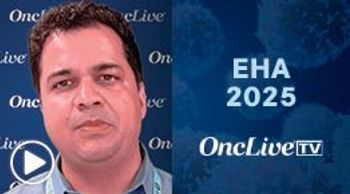
The associate professor of medicine at Stanford University School of Medicine discussed safety and efficacy data from a study presented at EHA's 2025 congress.
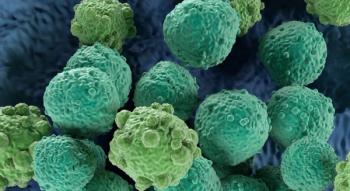
The approval was based on data from ZUMA-7, a phase 3 clinical trial.
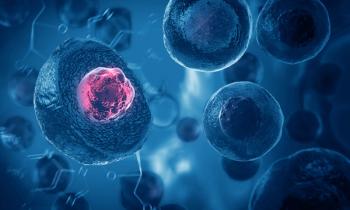
Liso-cel is at the forefront of clinical development for patients with chronic lymphocytic leukemia.
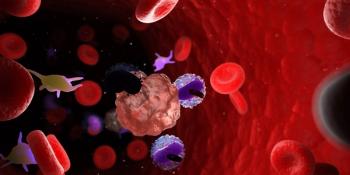
The phase 1 study met its primary endpoints, with 97% of the CAR T-cell therapies reaching the protocol-specified dose and no dose-limiting toxicities during dose escalation.

More than 70% to 80% of homozygous knockout of a given gene can be achieved by electroporating CLL cells with ribonucleoprotein complexes that harbor recombinant Cas9 nuclease and synthetic guides.
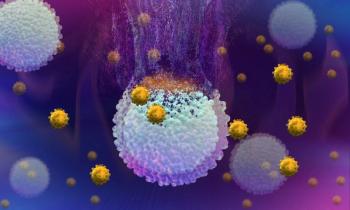
Krina K. Patel, MD, MSc, discussed moving away from chemotherapy and toward immunotherapy.
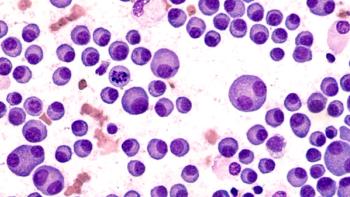
Noa Biran, MD, discusses exciting new agents in the field that may fulfill unmet patient needs.
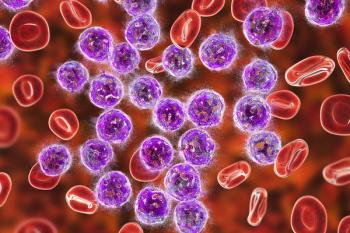
CAR T-cell therapy showed promising results in acute myeloid leukemia at ASCO 2021.
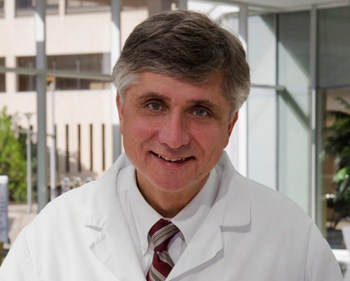
Tisagenlecleucel led to high complete response rates that appear durable for patients with follicular lymphoma, prompting a regulatory submission later this year.
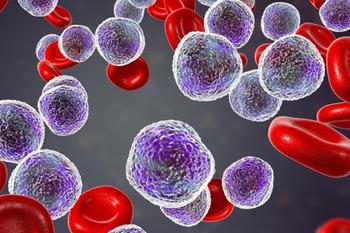
A second treatment with CD19-directed CAR T-cell therapy plus ibrutinib (Imbruvica) following failed prior CD19-directed CAR T-cell therapy and salvage treatment with ibrutinib led to greater efficiency and anti-CD19 CAR T-cell amplification, but also higher grades of cytokine release syndrome and more serious hematologic toxicity in patients with refractory B-cell non-Hodgkin lymphoma.
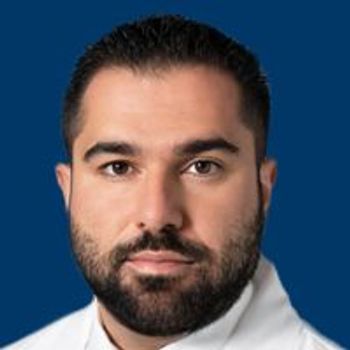
Arsen Osipov, MD, discusses the potential for ongoing research with immunotherapeutic approaches in gastrointestinal malignancies, including CAR T-cell therapy, bispecific T-cell engagers, and vaccines.

Since the publication of the pivotal ELIANA trial in pediatric patients with acute lymphoblastic leukemia, the field of CAR T-cell therapy has grown significantly and left providers better equipped to understand and manage treatment-related adverse effects, such as cytokine release syndrome.

Yi Lin, MD, PhD, discusses promising data with CAR T-cell therapy in multiple myeloma.
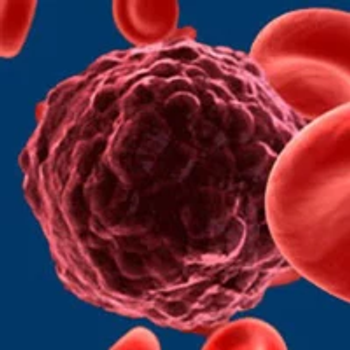
CAR T-cell therapy has shown robust responses and curative potential in patients with diffuse large B-cell lymphoma, regardless of cytogenetics or age.
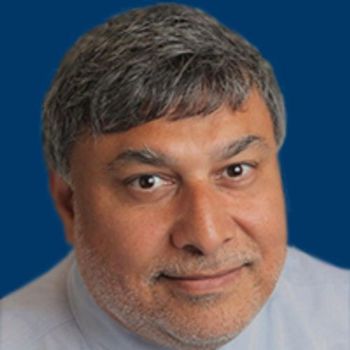
Checkpoint inhibitors have failed to improve progression-free survival and overall survival as second-line therapy and maintenance therapy in small cell lung cancer, but this class of agents continue to show encouraging activity worthy of a paradigm shift up front.
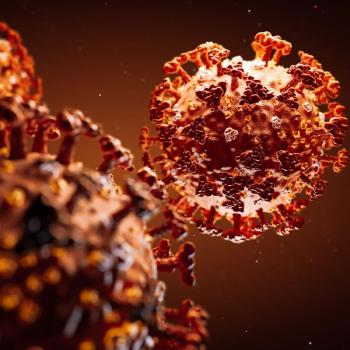
The effector profile of the SARS-CoV-2 virus–specific T-cell therapy, ALVR109, was polyclonal, polyfunctional, and displayed cytolytic activity against viral targets without allogeneic or autologous reactivity, suggesting ALVR109 could be a safe and effective treatment for the coronavirus disease 2019.

Alan P. Z. Skarbnik, MD, highlights how treatment decisions in mantle cell lymphoma have become more nuanced since the FDA approval of the CAR T-cell therapy brexucabtagene autoleucel in the relapsed/refractory setting.

Efforts to leverage targeted therapy and immunotherapy, which have been approved modalities in advanced non–small cell lung cancer, are leading to improved survival in patients with advanced and earlier-stage disease.
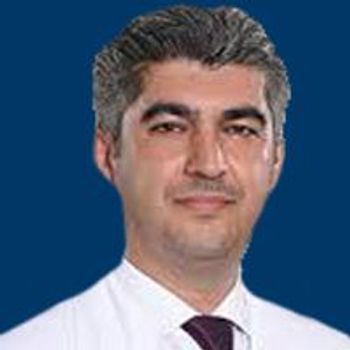
Cemiplimab-rwlc monotherapy led to a significant improvement in overall survival and progression-free survival versus platinum-doublet chemotherapy as first-line therapy in patients with advanced non–small cell lung cancer with PD-L1 expression on at least 50% of their tumor cell.

Jia Ruan, MD, PhD, discusses the current risk-stratification parameters and the evolution of treatment from high-intensity chemoimmunotherapy to novel therapy in mantle cell lymphoma.

Tisagenlecleucel led to clinically meaningful and durable improvements in health-related quality of life in patients with relapsed/refractory diffuse large B-cell lymphoma who achieved a complete or partial response to the CD19-directed CAR T-cell therapy in the phase 2 JULIET trial.
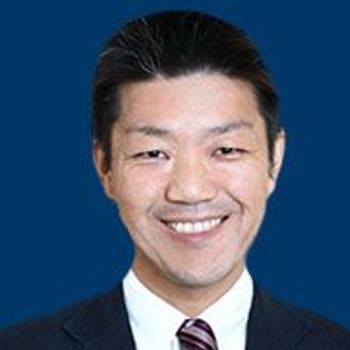
Concurrent frontline therapy with cladribine and rituximab led to a significant improvement in minimal residual disease–free complete responses versus cladribine followed by delayed rituximab in patients with hairy cell leukemia.

Michael Choi, MD, sheds light on the data with BTK and BCL-2 inhibitors in CLL and shares ongoing research being done with PI3K inhibitors and CAR T-cell therapy in the relapsed/refractory setting.

Diego Villa, MD, MPH, discusses the benefit of bendamustine and rituximab versus R-CHOP in transplant-eligible and -ineligible patients with mantle cell lymphoma.
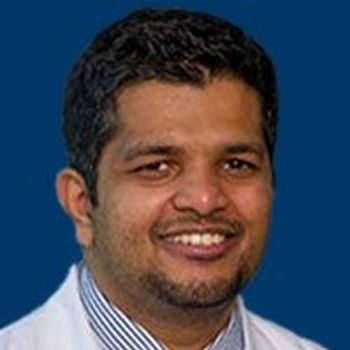
Praveen Ramakrishnan, MD, spotlights some of the exciting data recently presented across the spectrum of non-Hodgkin lymphoma treatment.

Ulka Vaishampayan, MD, discusses the historical management of patients with metastatic renal cell carcinoma and how advances with systemic therapy have impacted the sequencing of cytoreductive nephrectomy in the treatment paradigm.

Minimal residual disease has become an important investigational prognostic marker and risk stratification tool in acute lymphoblastic leukemia.

Eduardo Sotomayor, MD, discusses the evolution of CAR T-cell therapy, adverse events that require careful monitoring, and novel strategies under development that may mitigate toxicity and improve T-cell persistence.
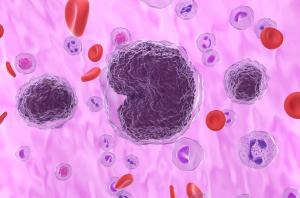
Published: June 29th 2025 | Updated:
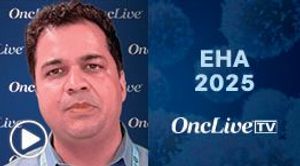
Published: June 13th 2025 | Updated:

Published: March 11th 2019 | Updated:

Published: April 28th 2019 | Updated:

Published: February 20th 2020 | Updated:

Published: December 23rd 2019 | Updated: